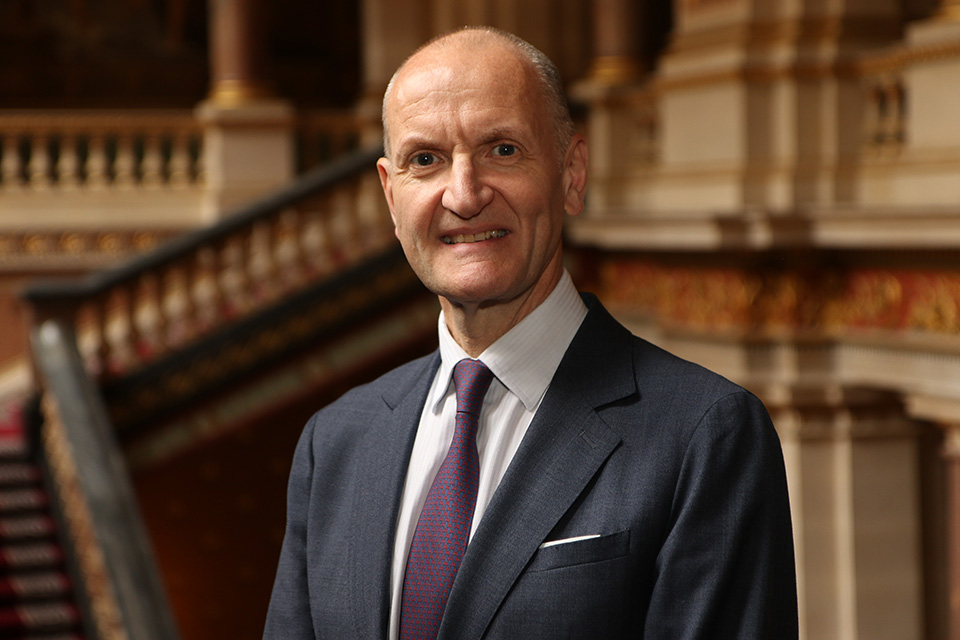Speech by Mike Nithavrianakis at 'Young Innovators'
Transcript of the speech by British Deputy High Commissioner Mike Nithavrianakis at the Chevening alumni event in Chennai on 19 March 2013.

I am delighted to be able the host our first Chevening/UK alumni event here in Chennai, which follows on from events in Coimbatore earlier this month and Trivandrum end of February.
Tamil Nadu is already a knowledge economy and innovation hub, but it has the potential to become a global centre of excellence by: nurturing a culture of innovation in schools and colleges; showcasing the successes of a growing minority of young innovators; and strengthening academic-industry links with the UK. Part of the Chief Minister’s Vision 2023 launched in Mar 2012, Tamil Nadu aspires to be a knowledge capital and innovation hub.
The UK is the ideal partner to strengthen academic-industry links. Innovation lies at the very heart of British culture and industry. Our ideas and inventions, from the telephone to the World Wide Web, have helped shape the modern world, and we are now helping reinvent it for the 21st century. Whether it is the development of IVF, the invention of the world’s first computer or the design of high-performance cars, the UK’s track record in innovation is second to none, making us the ideal partner for India, with its enormous human and intellectual capacity
On the theme of innovation, science and education, what are we doing in and with India?
- There is a lot we are doing together. The co-investment made by both countries in supporting joint research activities has risen from £1m in 2009 to around £125m today. Recent additions in the collaboration agenda include advanced manufacturing, bio-energy, smart grids, energy storage, next generation wireless systems and applied mathematics.
- The UK India Education and Research Initiative (UKIERI) since its inception in 2006 has supported over 1000 partnerships including over 380 in the second phase from 2011. You will be glad to hear that one of the four vital strands is innovation, the others being leadership, skills and student mobility. RCUK India is developing a joint programme of work with UKIERI to top up RCUK funded PhDs to enhance UK-India PhD mobility.
- India aims to increase the share of the workforce that has received vocational training from 2% to 25% by 2017, as part of a target to train 500m by 2020. UK companies, such as Vodafone and Pearson, offer innovative skills delivery. Organisations like City & Guilds are world leaders in professional standard-setting. Earlier this year both PMs affirmed their support for a strong partnership in skills development and noted the opportunities in the delivery of vocational skills in all sectors to their citizens. They agreed to take this forward, including by working towards an MOU between the Ministry of Labour and Employment in India and relevant UK departments and agencies.
- The UK Intellectual Property Office is implementing a project with the Indian Government, researchers and industry partners to develop guidance on intellectual property and model agreements for international collaboration. UK Trade & Investment is working with FICCI to help identify Indian investment streams and partnership arrangements for UK innovative SMEs.
UK Trade & Investment (UKTI) is looking to introduce India’s most promising innovative technology company to the best of UK. The contest is open until 31 March. The company with the most compelling proposal gets to visit London for a programme that includes receiving specialist advice, the chance to network with world-class inventors, incubators and companies in the UK and the chance to discover Tech City, Europe’s most vibrant innovation hub.
This is a good base but I am keen to make these partnerships stronger and wider and I hope you will offer your ideas to my colleagues over dinner on how we can fill some of these gaps and how we can leverage some of these existing links.
I look forward to meeting some of you over dinner.
Follow on twitter @UKinIndia